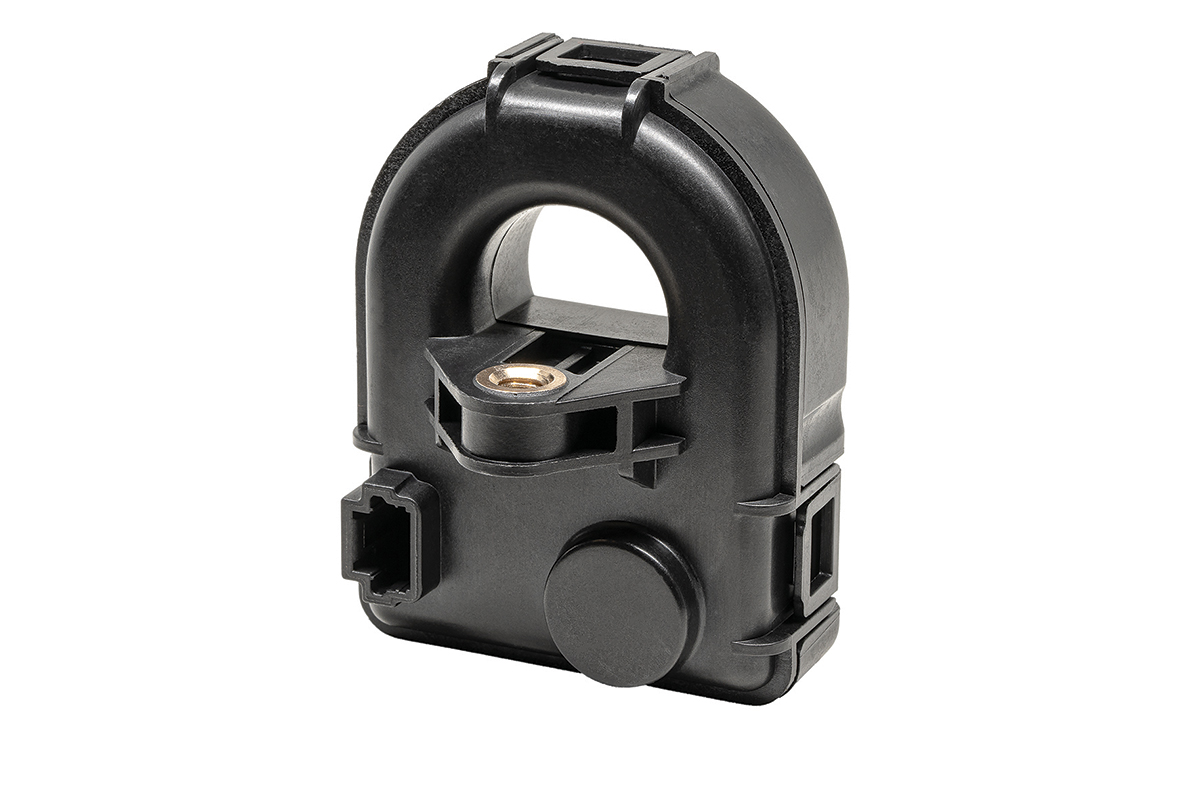Electrical measurement technology specialist LEM has launched its new CAB 1500 current sensor, which offers “best-in-class performance for accurate battery charge level measurement.” The new product is aimed at designers of Li-ion battery management systems, who require sensors that provide high levels of efficiency and accuracy.
The CAB 1500 is the latest member of LEM’s CAB series of automotive-grade design sensors. According to LEM, these use the properties of fluxgate transducer technology to deliver the high accuracy and low offset required for reliable coulomb counting—measuring the discharging current of Li-ion batteries to estimate their state of charge (SoC). The CAB series complies with the ISO 26262 functional safety standard (to automotive safety integrity level C), and supports a CAN interface at 500 kbps.
The CAB 1500 open-loop fluxgate sensor can be busbar- or panel-mounted, and delivers resolution up to 0.1%. It offers an extended current range up to ±1,500 A, and is compatible with 800 V applications to the IEC 60664-1 standard. The new sensor boasts non-intrusive measurement for full galvanic isolation up to 2.5 kV. Other features include low power consumption, VS shunt technology and 0.5% total error over temperatures from -40° C to +85° C.
Says Jérémie Piro, Global Product Manager BMS and Battery Storage: “Accurate battery charge level measurement is a crucial factor in being able to maximize the range of electric vehicles, and design engineers will welcome this addition to LEM’s CAB family, which offers the kind of performance levels they require. The CAB 1500 uses fluxgate technology to deliver the best SoC estimations on the market for today’s advanced EV battery management systems.”
Source: LEM


















































